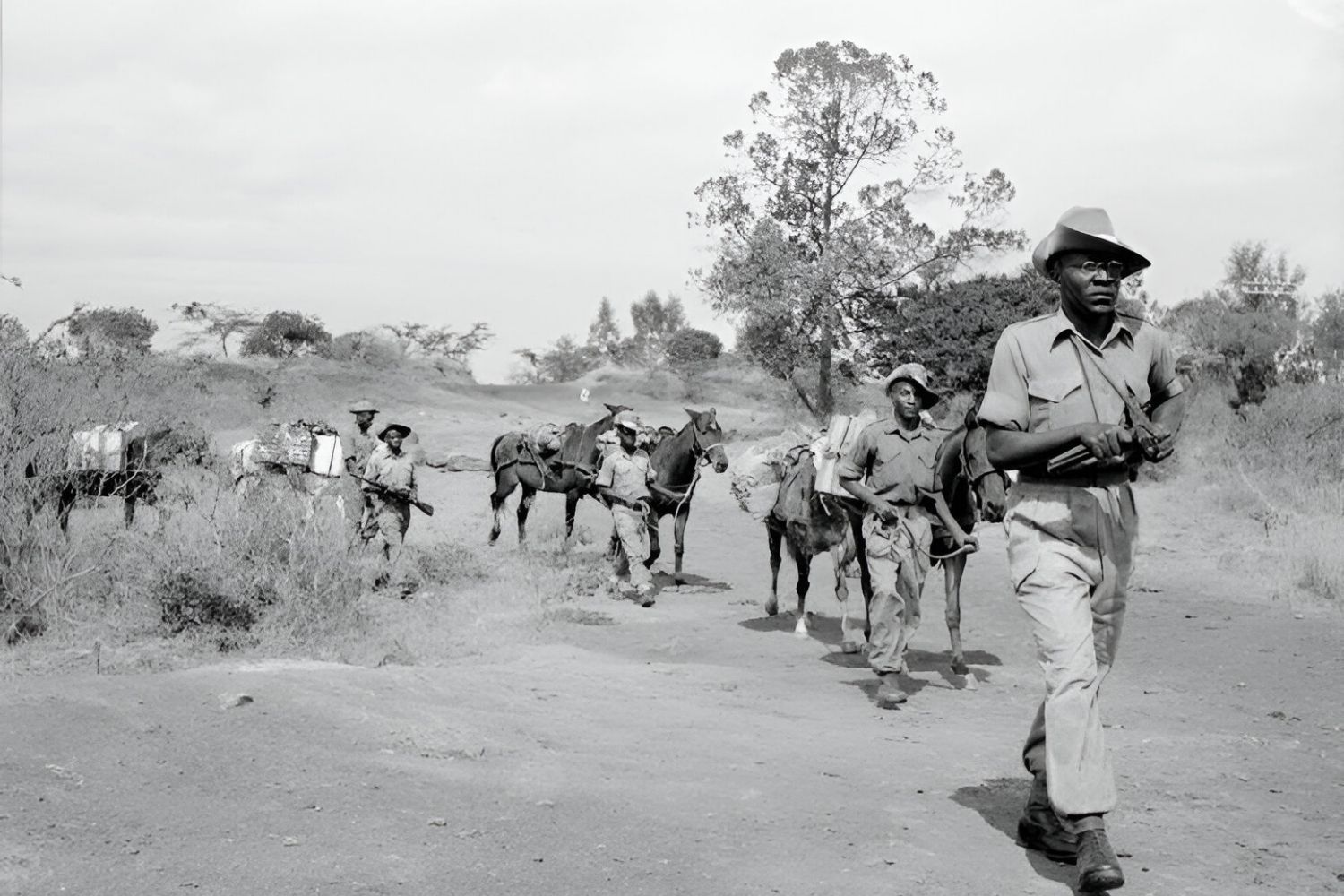
Did you know that Uganda has experienced multiple coup d'états since gaining independence in 1962? These dramatic power shifts have shaped the nation's political landscape in profound ways. From the infamous rise of Idi Amin in 1971 to the overthrow of Milton Obote in 1985, each coup has left a lasting impact on Uganda's history. Understanding these events helps us grasp the complexities of Ugandan politics and society. This article dives into 30 intriguing facts about these coups, shedding light on the key players, motivations, and outcomes. Get ready to uncover the turbulent history that has defined Uganda's path.
Key Takeaways:
- The Ugandan Coup D'État in 1971 led to the rise of Idi Amin, a notorious dictator. It caused economic decline, human rights abuses, and a climate of fear and repression in Uganda.
- The coup's legacy continues to influence Uganda's politics, serving as a cautionary tale about military dictatorships. It also inspired the current president's rise to power through a military struggle.
The Beginning of the Ugandan Coup D'État
The Ugandan Coup D'État of 1971 was a significant event in the country's history. It marked the rise of Idi Amin, a military officer who would become one of Africa's most notorious dictators. Here are some intriguing facts about this pivotal moment.
- The coup took place on January 25, 1971.
- Then-President Milton Obote was attending a Commonwealth conference in Singapore when the coup occurred.
- Idi Amin, who led the coup, was the commander of the Ugandan Army.
- Amin had been promoted by Obote, who trusted him with significant military power.
- The coup was bloodless, with no immediate casualties reported.
Key Players and Their Roles
Understanding the main figures involved in the coup helps to grasp the complexity of the event. Here are some key players and their roles.
- Idi Amin, the coup leader, was a former boxing champion and rugby player.
- Milton Obote, the ousted president, had been in power since Uganda's independence in 1962.
- The British government initially supported Amin, seeing him as a stabilizing force.
- Many Ugandan soldiers were loyal to Amin due to his charismatic leadership.
- Obote's policies had alienated many within the military, making the coup easier for Amin.
International Reactions
The international community had varied responses to the coup. These reactions influenced Uganda's future relations with other countries.
- The United Kingdom quickly recognized Amin's new government.
- The United States also recognized Amin, hoping for stability in the region.
- Tanzania, led by President Julius Nyerere, condemned the coup and offered asylum to Obote.
- The Organization of African Unity (OAU) was divided in its response, with some members supporting Amin and others opposing him.
- Israel initially supported Amin, providing military aid and training.
Impact on Uganda's Society
The coup had profound effects on Ugandan society, altering the political, social, and economic landscape.
- Amin's regime expelled the Asian community from Uganda in 1972, affecting the economy.
- The expulsion led to a significant loss of skilled labor and business expertise.
- Amin's rule saw the nationalization of many businesses, leading to economic decline.
- Human rights abuses became rampant, with estimates of up to 300,000 people killed during Amin's rule.
- The coup and subsequent regime created a climate of fear and repression.
The Downfall of Idi Amin
Amin's rule eventually came to an end, but not without significant turmoil and conflict.
- Amin's invasion of Tanzania in 1978 led to his downfall.
- The Tanzanian army, along with Ugandan exiles, defeated Amin's forces in 1979.
- Amin fled to Libya and later Saudi Arabia, where he lived in exile until his death in 2003.
- The fall of Amin's regime left Uganda in a state of chaos and economic ruin.
- Milton Obote returned to power in 1980 but was overthrown again in 1985.
Legacy of the Coup
The legacy of the 1971 coup continues to influence Uganda's political landscape.
- The coup set a precedent for military involvement in Ugandan politics.
- Yoweri Museveni, Uganda's current president, came to power through a military struggle, partly inspired by the events of 1971.
- The coup and Amin's rule are often cited as cautionary tales about the dangers of military dictatorships.
- Uganda has made significant strides in rebuilding its economy and society since Amin's fall.
- The memory of the coup remains a powerful reminder of the importance of democratic governance and the rule of law.
Final Thoughts on the Ugandan Coup D'État
Understanding the Ugandan Coup D'État offers a glimpse into a pivotal moment in history. The events surrounding the coup highlight the complexities of political power struggles and the impact on the nation's future. By examining these facts, we gain insight into the motivations, actions, and consequences that shaped Uganda's path. This knowledge not only enriches our understanding of Uganda's past but also underscores the importance of political stability and governance. As we reflect on these events, it's clear that history's lessons remain relevant today. Whether you're a history buff or just curious, these facts provide a deeper appreciation of Uganda's journey through turbulent times. Keep exploring, stay curious, and remember that every historical event carries valuable lessons for the present and future.
Frequently Asked Questions
Was this page helpful?
Our commitment to delivering trustworthy and engaging content is at the heart of what we do. Each fact on our site is contributed by real users like you, bringing a wealth of diverse insights and information. To ensure the highest standards of accuracy and reliability, our dedicated editors meticulously review each submission. This process guarantees that the facts we share are not only fascinating but also credible. Trust in our commitment to quality and authenticity as you explore and learn with us.
